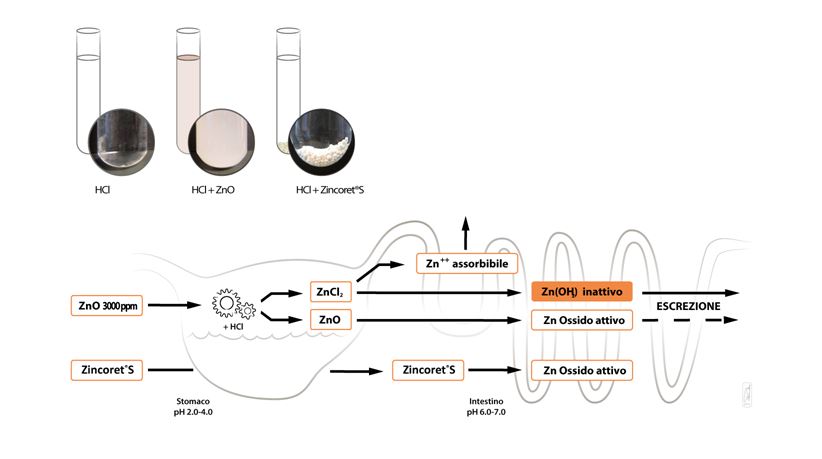Abstract
The objective of this study was to evaluate the effects of different organic acids on bacterial growth and ammonia production by swine cecal microflora in an in vitro fermentation system. Formic, acetic, propionic, lactic, butyric, sorbic, fumaric, malic, citric, ±-ketoglutaric, and benzoic acids were used at different concentrations (60, 120 and 240 mmol/l) to assess if any effect on cecal microflora could be shown. Cecal microbial growth was evaluated using the cumulative gas production technique. Fermentation fluid was analyzed for ammonia concentration. Lactic acid was the only acid that enhanced bacterial fermentation at every concentration tested (+30%, 73%, and 35% gas final volume at 60, 120, and 240mmol/l, respectively; P<0.05). Citric acid strongly increased gas final volume when used at 60 and 120mmol/l (+92% and 52%, respectively; P<0.05) and almost completely inhibited bacterial activity at 240mmol/l (–85% gas final volume; P<0.05). Sorbic acid showed the strongest antibacterial activity and was the only acid that reduced final gas volume when used at 60 mmol/l (–34%; P<0.05). Only sorbic (–34%, 47%, and 67%), fumaric (–57%, 35%, and 26%), citric (–31%, 18%, and 28%), and benzoic (–33%, 29%, and 38%) acids reduced ammonia after 24h of fermentation at any given concentration (P<0.05). Other acids, such as formic, acetic, propionic, butyric, and malic acids failed to exert an effective control of ammonia levels in the fermentation liquor. After the first set of fermentations, sorbic, ±-ketoglutaric, and benzoic acids were further tested at the final concentration of 7.5, 15, and 30mmol/l. At these lower levels of inclusion, sorbic acid was the only acid that reduced final gas volume at every concentration tested (–31%, 35%, and 39% at 7.5, 15, and 30mmol/l, respectively; P<0.05). Compared with control, ammonia was reduced after 24h of fermentation by all treatments (with an average reduction of 34%, 20%, and 24% for sorbic, ±-ketoglutaric, and benzoic acids, respectively; P<0.05). In conclusion, gas production data showed that organic acids inhibit or enhance cecal bacterial activity in relation to the type and concentration of acid used. Furthermore, sorbic, ±-ketoglutaric, and benzoic acids can positively influence swine cecal microflora in vitro fermentation reducing ammonia concentrations, even when used at low concentrations.For more information: marketing@vetagro.comRead the full text here.









